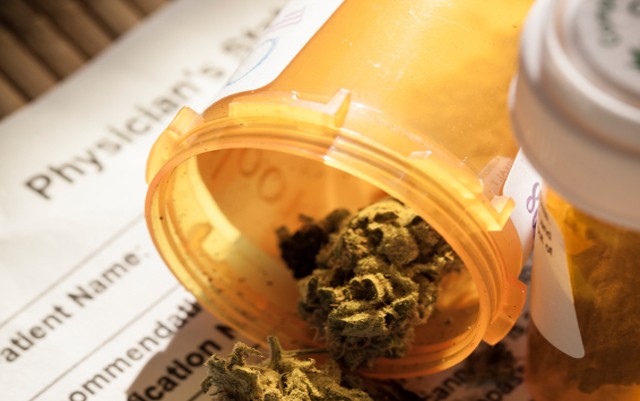This week marks the first time that there has ever been a formal hearing held to consider the possibility of adding opiate addiction as a qualifying condition for medical marijuana patients. A group of caregivers in Maine submitted a petition to the Department of Health and Human Services requesting the hearing. So on Tuesday (4/19), a hearing was held that lasted over 3 hours and offered testimony from 30 different medical marijuana caregivers and patients.
Until now, there have been patients treated for opiate addiction with medical marijuana, but it has never been considered as a qualifying condition. Usually people who used medical marijuana to fight addiction got a prescription for another condition, like chronic pain, or lived in a state with looser restriction on what qualifies, like California or Massachusetts. However, caregivers and patients who have used chronic pain as a way to obtain medical marijuana have seen amazing results – even if science doesn’t have the numbers down on paper yet.
“We clearly have a major public health issue and we don’t currently have a good solution to it,” said Dr. Dustin Sulak, a Falmouth-based doctor and leading expert in Maine on medical marijuana. “Cannabis alone isn’t enough to completely solve this epidemic, but we need a treatment that can replace the opioids.”
Even with the large number of people who are in support of adding opiate addiction to the list of qualifying conditions for medical marijuana, there was still quite a few doctors and caregivers who are in opposition because of the lack of scientific research to prove that marijuana is an effective and safe treatment. They feared that it could simply be substituting one substance for another – but in the end, if something is needed for pain management regardless, it would be better to go with something where an overdose doesn’t result in death, right?
Besides that, there was enough research for the CDC to call for doctors to stop drug testing for THC and to stop dropping patients from programs over marijuana use. This alone should be proof that there is something to this – the number of opiate overdoses has reduced as much as 25% in states where medical marijuana is available; just think how much it could be reduced if opiate addiction was a qualifying condition as well.
“Those are some of the best things to use cannabis for clinically,” (Dustin Sulak) he said. “In our practices, we probably see at least one person every day – and often more – who has replaced opioids with cannabis. They say they have their life back. Their function improves and their quality of life improves.”
The proof is out there – hundreds if not thousands of people turning their lives around by substituting medical marijuana for opiates. If they were able to reduce the amount of opiates they needed and even eliminate them that shows great potential for medical marijuana in treatment of opiate addiction. The proof is in the patients, it just hasn’t been recorded on a large scale because of how hard it is to do a proper study on cannabis thanks to the federal government.
Hopefully, the Maine Department of Health and Human Services takes this petition seriously and truly considers the possible benefits – especially knowing the law can be changed again later down the road if this were to, for some reason, not work out well. They have 180 days to either approve or deny the petition, and if they approve it then Maine would be the first to officially add opiate addiction to the list of qualifying conditions for their state medical marijuana program.






